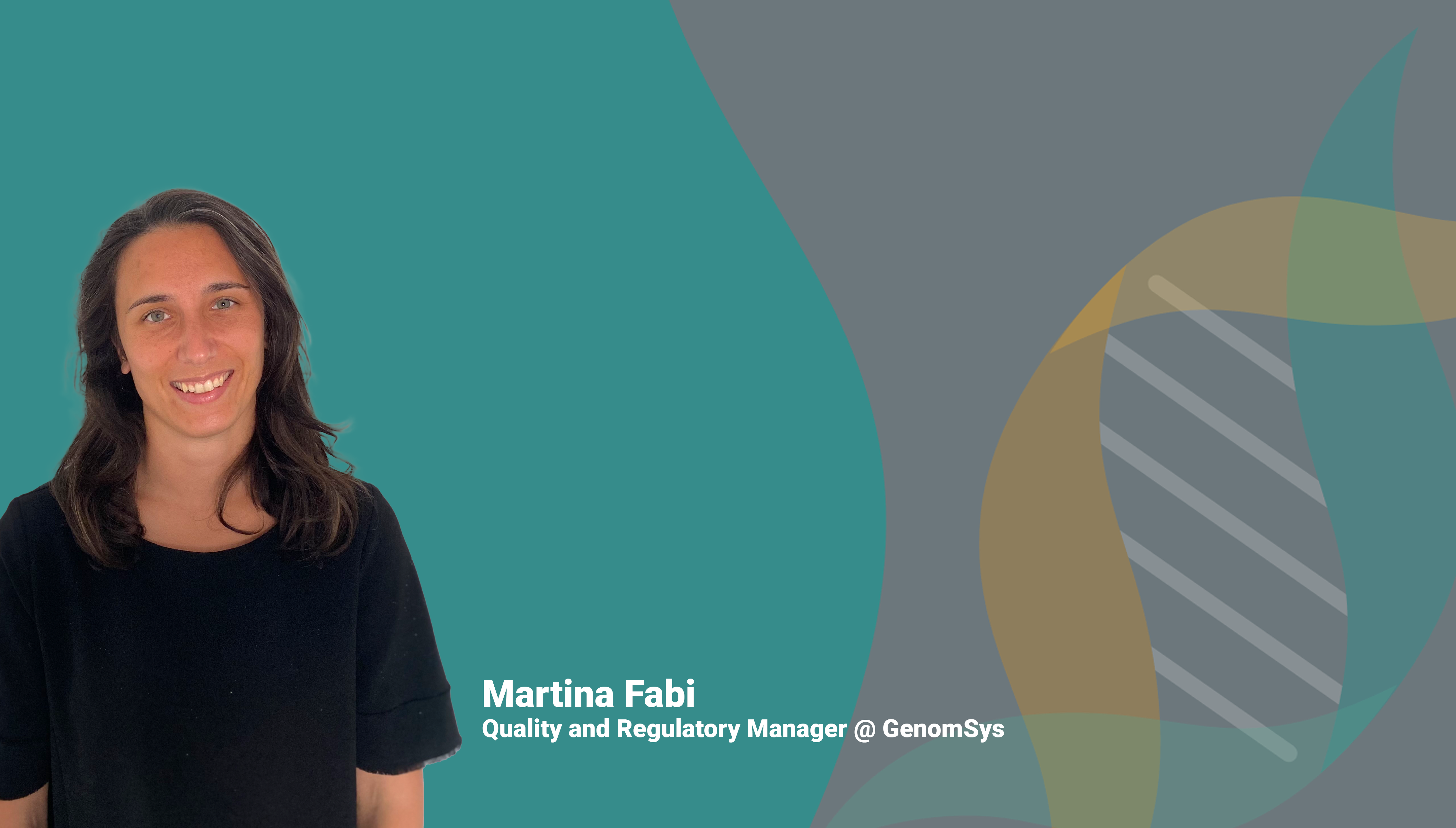Learn more about Martina through the following quick questions:
Hi Martina. What do you do at GenomSys and what are you currently working on?
Hi! I’m looking after all the quality and regulatory affairs of GenomSys, translated I make sure that the company is compliant with the requirements of all regulations regarding in vitro diagnostic medical device. Right now we are preparing the medical device file accordingly to directive 98/79/EEC, and soon we will complete the ISO 13485 certification.
Your take on personalized medicine and what role does GenomSys play in that?
Personalized medicine will be the future, and to achieve this goal we have to work hard on research. New discoveries in medicine have accelerated over the past few decades, and with the sequencing of the human genome, we will get an incredible improvement on personalized treatment, early diagnosis, and healthcare in general. GenomSys can play a key role in this evolution on two sides: provide a more efficient analysis and empowering the end consumer.
What is the greatest benefit of MPEG-G in your opinion?
The ability of MPEG-G to solve the problem of efficiency and cost-effective handling of genomic data. This is the first step to allow citizens to own, store and process their own DNA sequencing data possibly in their smartphone.
Why did you join GenomSys?
Working in an innovative and dynamic environment always triggers the best part of me. I’m excited to have the possibility to learn more about genomics and be part of a disruptive change in personalized medicine, which I believe will be the future.
Genomic data and data privacy challenges. What is in your opinion a way to solve this issue?
Data privacy is one of the biggest challenges in the current era, where digital data is the largest type of data and the most valuable one. If we mix genomic data and privacy, I guess we obtain the most explosive blend. People should own their genomic data, be able to decide with whom they want to share it and what type of analysis they want to have carried out on it. Still, legislations are far away on securing genomic data protection and at the same time allow more extensive use of it.
When you’re not maintaining quality at GenomSys, what do you do in your free time?
During my free time, I usually train my dogs: swimming sports, detection and obedience, and of course also a lot of trekking that allows me to visit incredible places and see beautiful landscapes.
Do you have a favorite chromosome and why is this your favorite one?
I’m definitely intrigued by the Y chromosome, even if it is the “weak” chromosome between the two sex chromosomes. What’s interesting about the Y chromosome is that it’s quite small in comparison to the X one, and there’s always been this debate about if the Y chromosome is getting smaller and smaller over subsequent generations, which I think is really kind of an interesting phenomenon. What is the future of the Y chromosome? Is it destined to extinguish?
If you have any further questions for Martina or about GenomSys please feel free to contact us.





